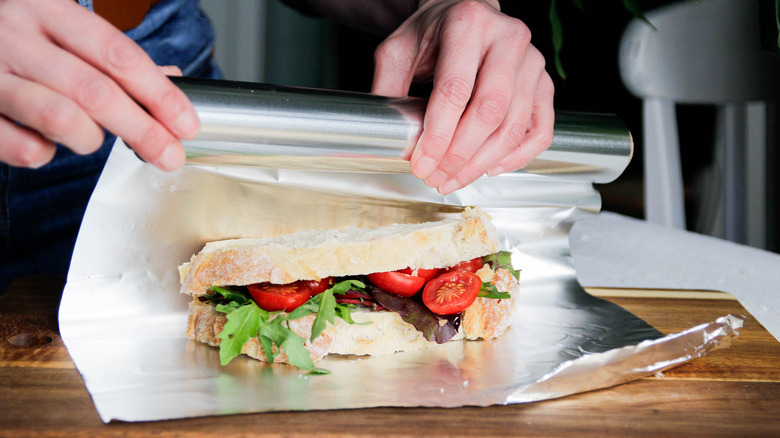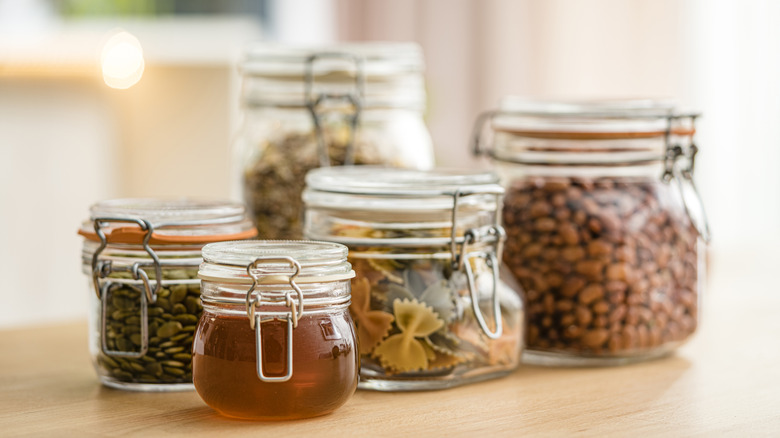The Type Of Food You Should Stop Storing In Aluminum Foil (Unless You Like The Taste Of Metal)
For decades, aluminum foil has been the material of choice for storing leftovers. When it's time to wrap up everything from sweets and sandwiches to casseroles and other large dishes, aluminum foil is a lightweight, easy-to-shape option that seems to work well for covering just about anything. It doesn't even matter which side you use.
However, aluminum foil can have different effects depending on the food it covers, so don't simply throw leftovers in the fridge and forget about them. More acidic foods, in particular, don't mesh well with foil and can impart your meal with an undeniable metallic taste. For this reason, it's best to avoid using foil to wrap marinades or dishes with tomato or vinegar bases, like sauces and salad dressings.
Keeping these foods away from aluminum is crucial due to the acidic ingredients — especially citric acids like lemon juice, lime juice, and other fruit juices — which can degrade and even corrode the material over time. When that occurs, the metal can mix with the food being stored, leaving behind bits of shaved aluminum that can pose potential health risks if overly consumed.
There are better options for food storage out there
Often associated with soda cans, storage containers, and foil itself, aluminum can be found in many different types of food products. While the metal can be ingested in minuscule amounts, storing acidic foods in foil long-term isn't good for your health. Additionally, salty foods can react negatively to aluminum foil, including when grilling. There remains some debate about whether food grilled in foil is safe to consume.
To avoid any unexpected and unwanted side effects from aluminum, experts recommend using it for short-term storage (a day or two at most). To keep leftovers safe and fresh for longer (roughly three to four days), store them instead in airtight packaging such as glass or plastic containers or even plastic wrap. Although aluminum is easy to use, it doesn't provide a tight seal the way these other methods do.
Aside from wrapping up food, aluminum foil can be used in many ingenious ways around your kitchen. However, as far as food storage is concerned, plastic containers are a better — and certainly safer — bet for keeping your leftovers fresh.

